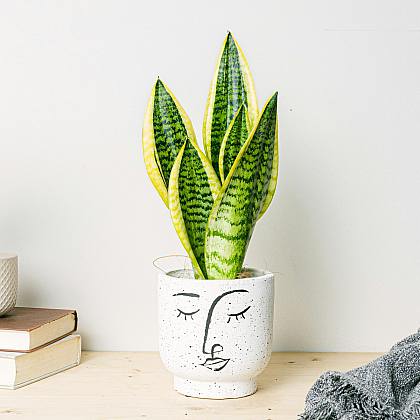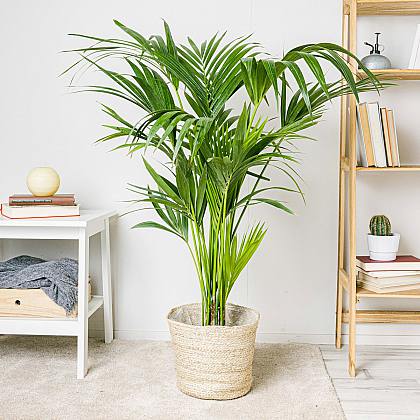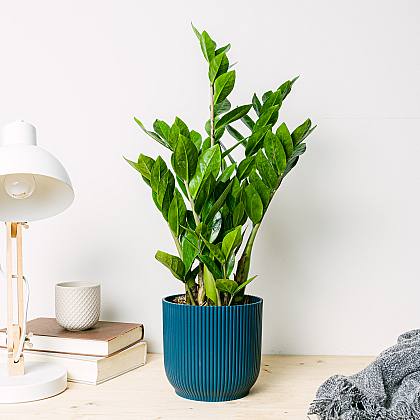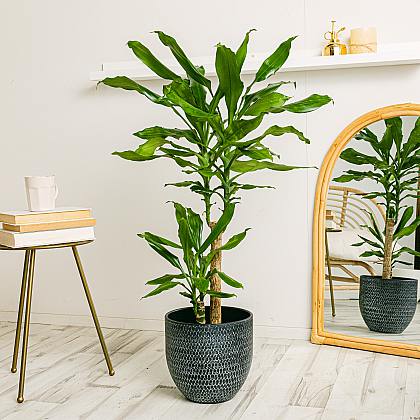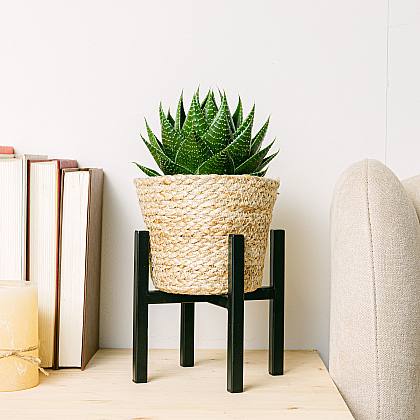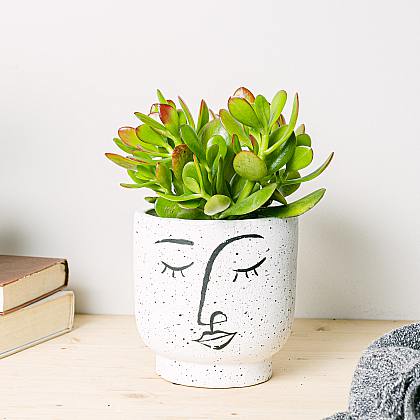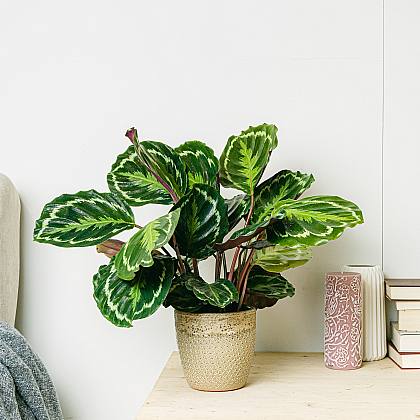Why you need plants in your life
Just as we need to sleep and eat, some greenery is essential for our well-being. Without going into complex theories, we could say that human beings tend to
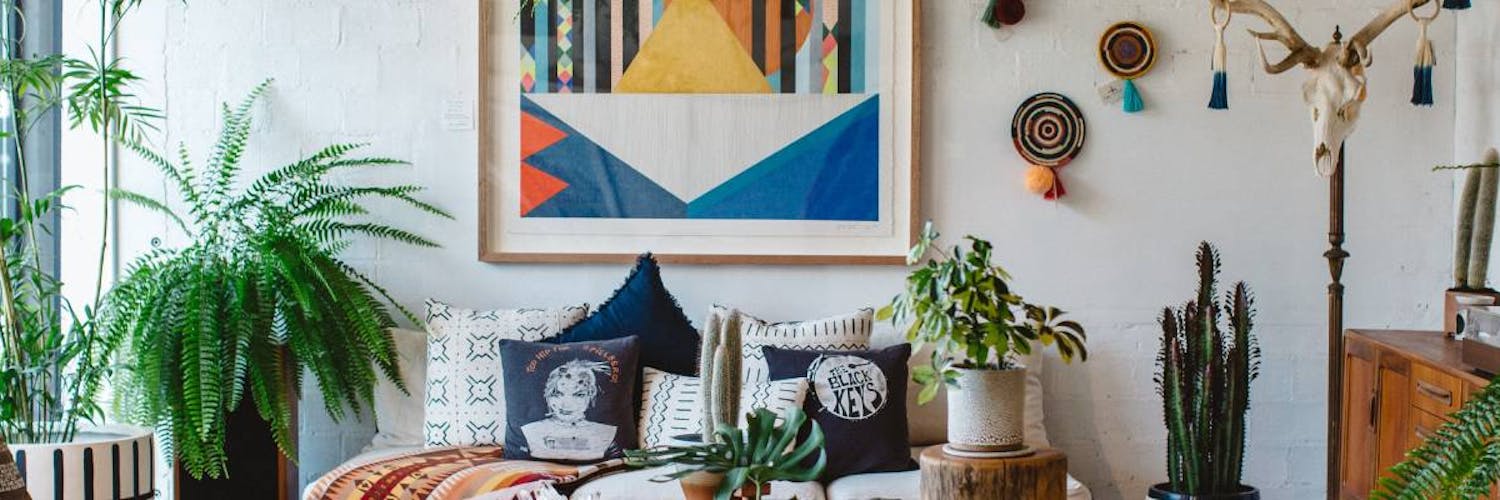
Without going into complex theories, we could say that human beings tend to surround themselves with things for two main reasons: need and desire. The classification is quite simple and useful, since we have objects that are imperative to be able to live or that facilitate vital processes, while others are related to aesthetic pleasure or the simple desire for possession. I need to have a kitchen at home, but I don't need that porcelain vase, no matter how cute it is. The vase is an expendable indulgence. There are those who put plants within the category of those things that we like but that are not essential, but the truth is that we need plants in life. Just as we need to sleep and eat, some green is essential for our well-being.
Plants: Necessity or Whim?
Human needs have different spectrums, not everything necessary is taken care of the physiological part but it is also necessary to attend to what is not so easy to observe: mental and emotional health. It is at this point where plants transcend their role as mere aesthetic ornaments to become essential tools for psycho-emotional well-being. And there are many serious scientific studies that support this claim.
It all starts with a study by Charles Hall and Melinda Knuth at Texas A&M University, which was published in the Journal of Environmental Horticulture in 2011 and became very popular in the mainstream media. This study was responsible for verifying the positive effects of houseplants in the management of anxiety, stress reduction, attention deficit, in addition to improving memory, decreasing depression and increasing the feeling of happiness and satisfaction. As if that weren't enough, plants also have a positive impact on productivity, creativity, attention, self-esteem and even post-traumatic stress management.
From this point on, studies related to human well-being and plants have continued to multiply and the conclusions can be summarized in a simple way: human beings need plants to have a much more balanced and happy life. Some define this tendency as biophilia, meaning that humans have an innate tendency to seek connections with nature and other forms of life. In fact, this affinity has been harnessed in architecture to create spaces that seek to imitate these natural forms and naturally reduce stress, stimulate creativity and thought. It is not far-fetched, as it has been proven that there is a correlation between the stress response and the complexity of fractals that occur in nature.
To enjoy the benefits of plants you don't need to have a forest to walk in every day, or escape civilization every week, having a plant at home or office is enough. There are studies that say that the positive response of plants can come from houseplants, bouquets of flowers, and even photographs. In fact, a experiment confirmed that those employees of a company who were exposed to rose bouquets in their office had a better response to stress than those who had no contact with the flowers.
There
arethose of us who have been attracted to plants almost since childhood, but there are many others who may think they are cute but need extra motivation to decide to adopt their first specimen. This is not to be criticized, because plants are living beings that require care and some attention and not all people have the disposition or the time to do so. Having a plant is a responsibility, but the good news is that there are plants that are very easy to care for (there are even some like the Sansevieria that grow more and better if you neglect it a little) and the real and tangible benefits of taking care of a plant far outweigh the effort and time invested in them.
I'm not exaggerating when I say that almost everyone starts with a plant, sometimes they get it for a gift or because they do someone a favor to take care of them, and they end up with a jungle branch inside the house. This may be the case for you, or you may be happy with a couple of succulents, but it's impossible to ignore all these benefits:
- Plants Decrease Stress and Anxiety
I can cite a lot of studies that prove that having plants makes you feel calmer, calmer, and more comfortable. First of all, the color and shape of the plant awakens in us an atavistic response, calms and relaxes us. Plants allow us to recover from mental fatigue, lower blood pressure and taking care of them also has a relaxing effect.
As a curious fact, people who live in places farther from nature are more likely to suffer from stress and anxiety and green areas in residential areas contribute to improving these responses. Another study found that women are more likely to experience stress when we are away from nature, so we need to have plants even more (Pay attention to this fact, because this is the perfect excuse to have all the plants we want).
- Plants
have a positive effect on the ability to concentrate, even in people with ADHD (attention deficit disorder). Exposure to contact with nature can even help work on cognitive function, spatial memory, and attention. A simple walk through an area with trees or working on taking care of the plants, even taking short breaks to observe the plants can contribute to improving attention and focus during work or tedious tasks.
These positive effects have been observed in work environments and in preschool-aged children diagnosed with attention deficit disorder. It seems unbelievable, but something as simple as looking up from your computer screen to look at your plants can be enough to refresh your mind, improve focus, and allow you to get work done more efficiently and quickly.
- It's
no secret that environmental pollution is on the rise and is much more evident in big cities. Not only is it something that affects you in the long run, but you see its havoc on your skin, hair, and respiratory system on a daily basis. Pollution is not just an outdoor problem, but inside the home it can also be a problem that manifests itself with sudden allergies, breathing problems, eye irritation, phantom headaches, and fatigue. This pollution comes from toxic emissions of synthetic materials such as benzene, toluene, formaldehyde, trichloroethylene, xylene and benzene, mold spores, among others. If we add to this the fact that we live in very isolated spaces, without ventilation, to improve energy efficiency in summer or winter, it is the perfect environment to get sick.
It sounds scary to think that we breathe in a lot of elements that cause short- and long-term health problems on a daily basis, but plants are there to help us. There are purifying plants, capable of absorbing and processing these harmful substances. If you suffer from allergies or any of these unpleasant symptoms, don't hesitate to get some specimens of purifying plants such as Zamioculcas, pothos or dracenas.
- Growing plants is therapeutic
One study found that when a group of elderly women participated in 15 gardening sessions, they improved their stress levels, increased muscle mass, and gained more manual dexterity than the control group that did not participate in these activities. But the benefits are not only physical, because paying attention to the needs of the plants, caring for them and watching them grow offers a sense of accomplishment and purpose that are necessary for the recovery of difficult processes on a mental and emotional level.
Caring for plants can work wonders for people suffering from depression, anxiety, or dementia. Plants are living, dynamic beings, which require some interaction with people but not too much (such as a pet, for example), this allows to create a bond of dependency as well as a purpose/responsibility that is quite easy to manage that can be enough to involve the individual in the experience of the present moment.
- Plants Improve Your Resilience
A person who has been through surgery, illness, or injury can benefit from plants. A study conducted in 2002 revealed that people who recovered from different types of surgery and were able to see plants required fewer painkillers and painkillers than those who did not have access to them.
This may be related to the relaxing effect that nature has on people, decreasing stress and improving the immune response. Plants stimulate the production of happiness hormones, make you feel more relaxed and confident, so the body can devote all its resources to recovery.
Plants improve self-esteem- Decreased self-esteem
typical in children and adolescents, but it is also possible in adults. This is related to many causes, but having plants can improve this indicator of mental health. First of all, growing a plant can show the child or adolescent the transformation it undergoes as it grows, the changes and processes involved in this phenomenon; allowing you to draw a parallel to your own life experience.
On the other hand, growing a plant successfully allows you to turn your attention to another living being, which responds positively to the care and attention they provide. This is a way to offer purpose and accomplishment, but it's also a means to learn that giving is a way to love and cherish yourself. If you are able to take care of a plant, make it bloom and keep it alive, you are discovering a new talent that will allow you to feel better about yourself.
- Workplaces
where there are elements of nature, from a window overlooking a natural place or indoor plants, tend to improve productivity and attention in employees. Natural light and plants are key to creating work environments that relax workers, eliminate stress, and stimulate creativity. Seeing plants will make you feel more alive, put you in a better mood, and even improve interpersonal relationships between those who share the space.
Having plants in the office lightens the mood, makes it more comfortable and homey, less hostile and more relaxed. Employees will feel more at ease, rather than feeling like they want to run out of there as soon as the clock strikes the time they leave. It's not the same to do a task while you're happy than to do it when you're not in the mood for it. The relationship is very simple: working in a place with a positive and healthy environment has a direct positive impact on people's production capacity.
- Plants make you happier
It seems like an exaggeration, but the truth is that interacting with nature and plants improves mood, reduces stress, anger, and improves feelings of psychological well-being. They also improve self-esteem, make you feel productive, and offer you a sense of accomplishment. All of these positive effects are immediately reflected in emotions and behavior.
Connecting to nature through growing houseplants is at first glance too mundane, but these seemingly simple acts have an incredible impact on the overall sense of well-being. There's something meditative about gardening, which allows you to stop for a few minutes a day to water the plants, observe them, and tend to them. This ability to live in the present moment, in the here and now, is key to achieving the feeling of personal satisfaction. It is in these little things that plants teach you, in the tiny miracle of an unexpected flower, a new leaf or a new bud where the true secret of happiness lies.

